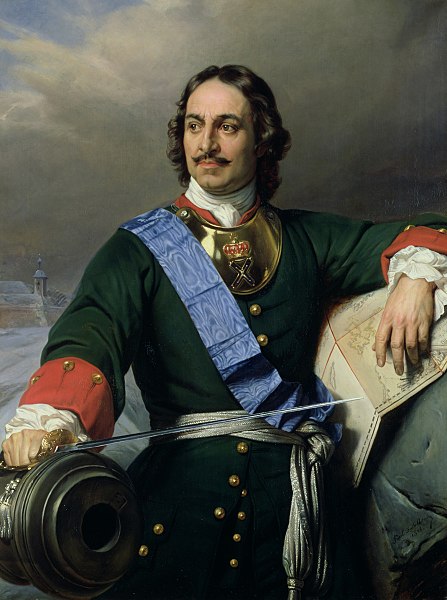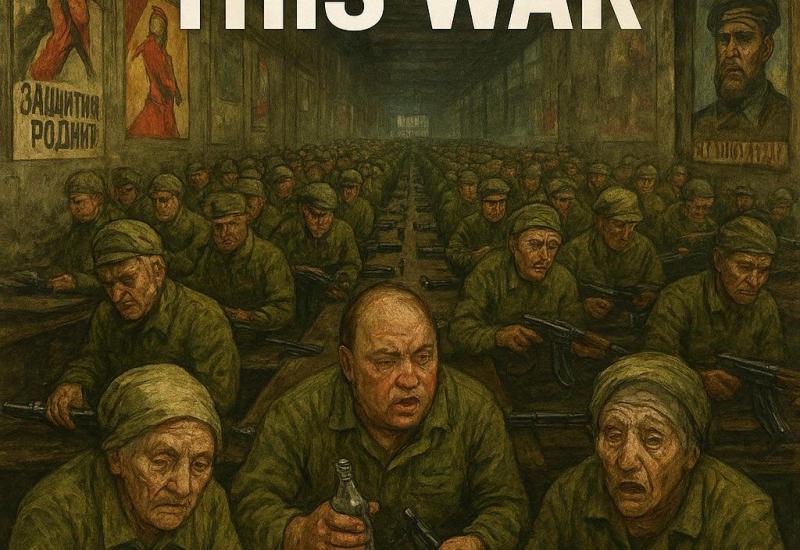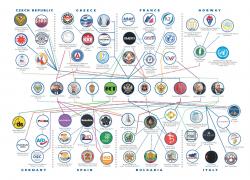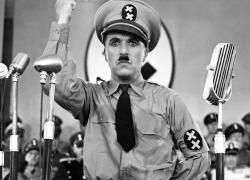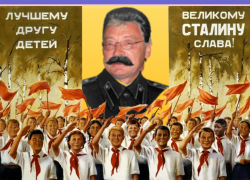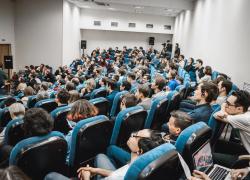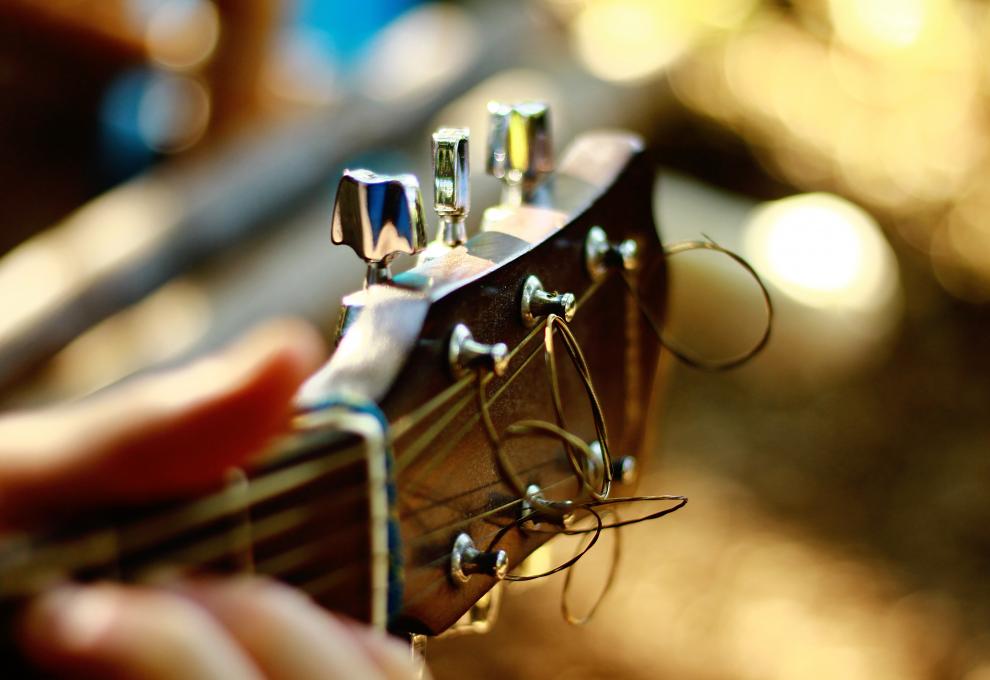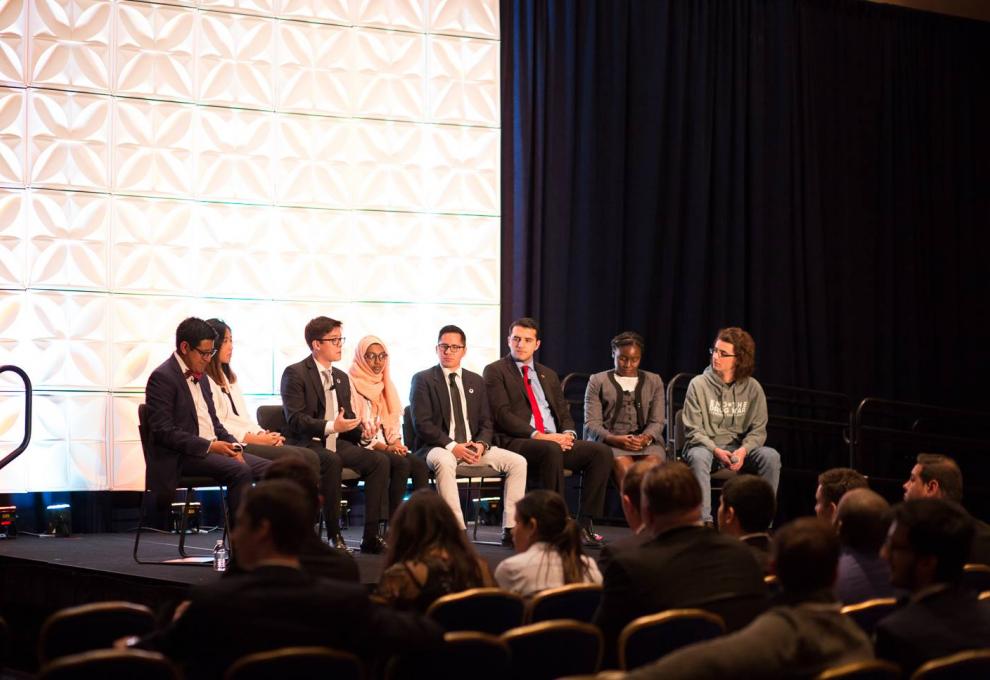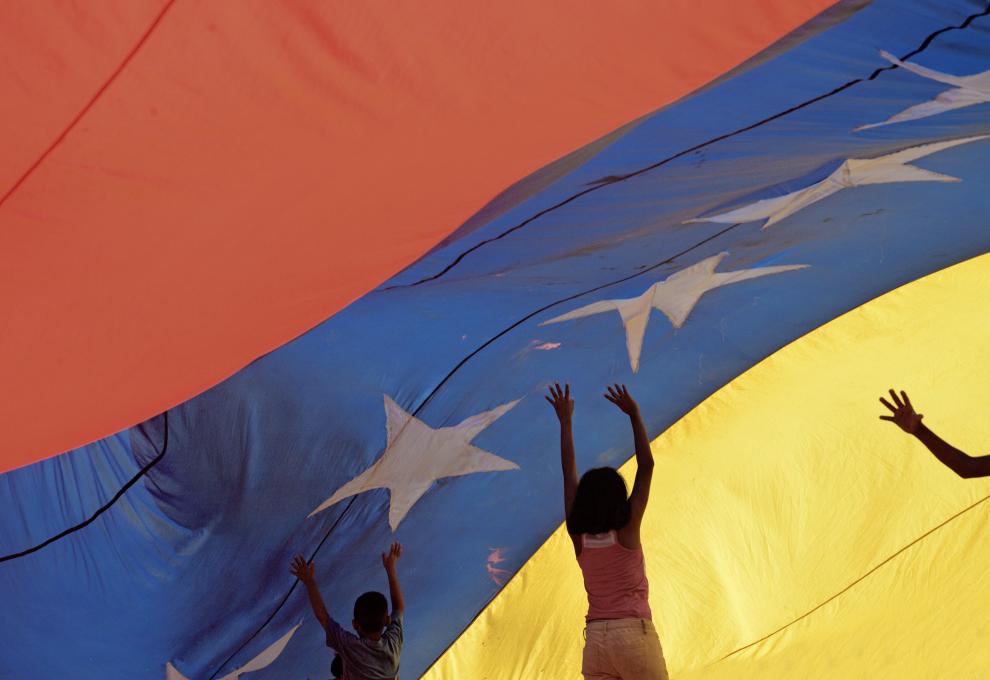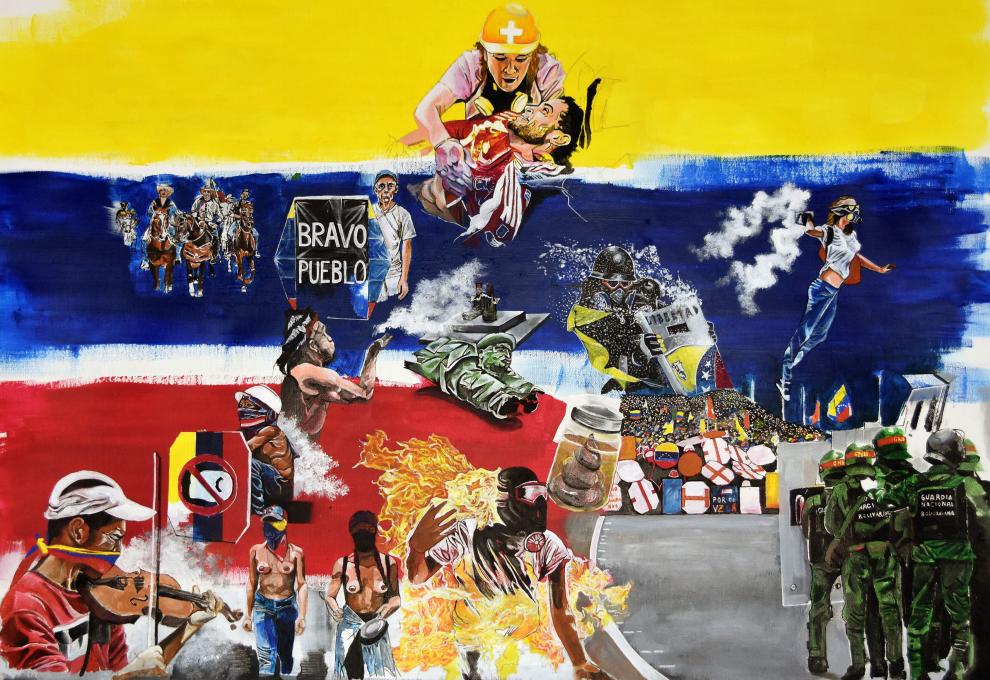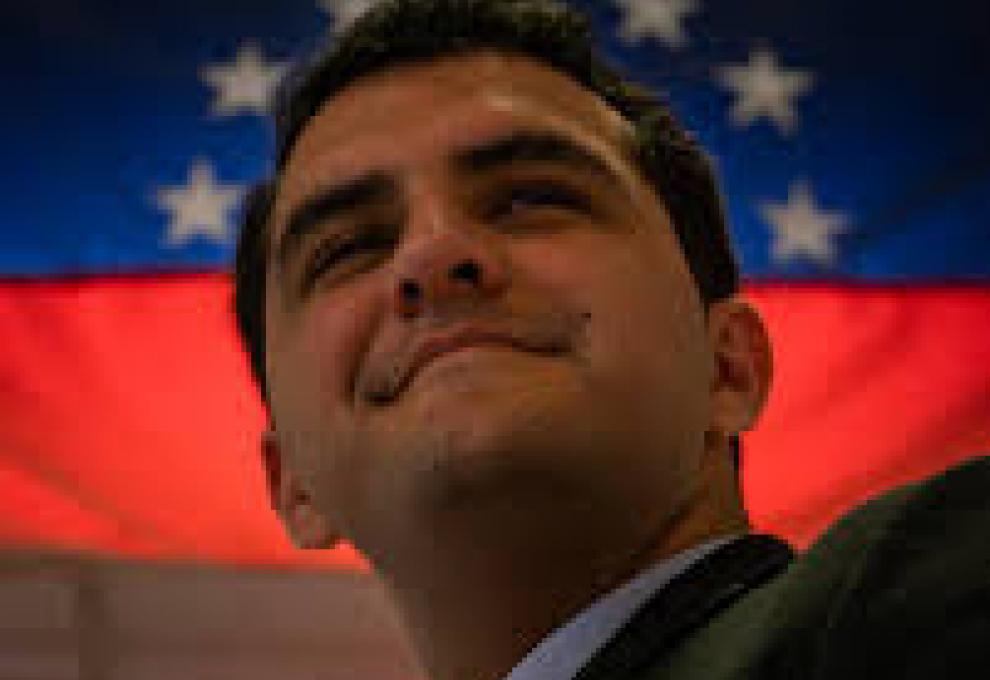Russia versus The West: All about values and goals
“Be more autocratic than Peter the Great and sterner than Ivan the Terrible.”
Tsarina Alexandra, to her husband Nicholas II
My western readers are looking for peaceful solutions when they see a crisis at the borders of Ukraine, where more than 100,000 soldiers are deployed. Is there any peaceful solution? Not at all, because we are dealing with the greatest imperialist country – Russia, and when on the one hand there’s such a simplistic nature of power and creeping soul of occupation, we are in a silly position waiting for peace. Many had a speech about Russia in the past, many are speaking now, the world has changed, the US has changed, China has changed, but Russia is unchangeable, with its goals to dominate Eastern Europe, if not the globe.
Peter The Great – was one of the main figures who dogmatized Russia’s foreign policy. Peter came to power in 1682, when Russia was not a great power but was increasingly powerful in terms of manpower and consolidation about imperialist policies. As once Henry Kissinger said Russia added an average of 100,000 square kilometers a year to its territory from 1552 to 1917 but wasn’t able to challenge Great European Powers. So, Russia from its start was very greedy, because its monolithic autocratic, but diverse society could not be living in peace without permanent creeping to their neighbors. Russia tempered this imperialist desire for defense because if you have people who in the past had no connections, even now living without any civil-national identity, one way that you should follow is permanent war and creation of icon of the enemy. At the beginning of Peter's reign, Russia territorially was a huge power without access to the Caspian, Black and Baltic seas. So, Peter the Great had to strengthen influence on the Black Sea and the whole of Eastern Europe, this reality changed Russia’s foreign policy forever. 8 July 1709, was the largest battle of the Great Northern War that ended with winner takes all principle for Russia. Peter put an end to the Swedish Empire and Carl Gustaf Rehnskiöld (Charles XII) as a European great power – Birth of the Russian supremacy in Northern Europe. These events shaped Russia’s foreign policy forever. Although post-Westphalian Security Architecture clearly defined rights and responsibilities for independent countries, such as the right to have a sovereign state without external involvement, it restricted imperialist wishes that violently were changing borders. As we mentioned above about Russia and its imperialist policies Westphalian Architecture became a problematic issue for policymakers residing in the eastern part of Europe. And we did not mention the biggest schism between western European countries and Russia. If we look at the culture, society, values, and traditions, even in the past, imperial-leaning European countries are more progressive than Russia in any century. Peter the Great tried to improve living standards in Russia, even reformed educational institutions trying to modernize the cultural environment, but did not change the status quo. Peter indeed wanted to modernize Russia, as European countries were, but what he blew in Russian national identity and imperial ambitions, is very dangerous even after tens of generations.
Difference. . .
If we look at the starting point of The West and Russia, we’ll find very different foundations. It’s not surprising if we compare Russia to the US or UK, because these two countries are the oldest democracies and chained together with great Anglo-Saxon traditions, free-market economies, democratic values, and the absence of universality. When I say “absence of universality” it doesn’t mean, that democracy is not the universal foundation, but I mean the total absence of universality in terms of cultural, ethnic, national, and religious superiority. US, UK, and other old democracies were founded on the grounds, that people must tolerate different micro-societies, Catholics must be living in the neighborhood of Protestants and the opposite, not because they love, even if they hate each other, but because if we return to the pre-Westphalian world – conflict never ends. When we speak about how the US or UK became democratic countries, we did not mention the bottom-up struggle of their people. The US and other western countries became democracies because all the cultural, traditional, and civil institutions were based on people’s will, so they changed all the political systems from bottom to up and are keeping this republican democracy forever. On the other hand, Russian society doesn’t have any democratic foundations, truly many people are struggling for democratic changes, but they’re like cornered players, without any possibilities to overcome autocratic institutions not only in Kremlin or State Duma but firstly in their own families and friends. Russia is not dangerous because of the government, but because of the society, that is unable to look forward. When I mentioned prerequisites, what quickened democratic progression in the western hemisphere was democratic foundations of society and their free will, but in the case of Russia, we can’t have either cultural or traditional democratic institutions nor the free will of the people to do so. It was impossible for Russia not to be autocratic, imperialist, and aggressive. You can’t be ruling a country with a liberal-democratic constitution, where it’s very unpopular and dangerous to be different.
2 days ago I saw in the media, approval rating according to the Levada Center pollster, Putin’s job approval grew to 69% last month amid tensions at the Ukrainian border. Same as it happened after Russia attacked the sovereign state of Georgia in 2008. Hard times clearly show us how Russian society consolidates around the Kremlin's imperialist moves to impudent neighbors. Do not exclude if Vladimir Putin tries to improve rating and test the West positions. This is Russia's simplistic form of governance: try to press your neighbors, look at the reactions, and plan your next steps.
Difference and fear. . .
We discussed the main differences between Russia and The West, but why Ukraine or Georgia? There’s a clear answer. When the Soviet Union dissolved in 1991 after a few years the Baltic states of Estonia, Lithuania and Latvia were much more developed, than failed states of Ukraine and Georgia, and because of that, they became a member of the EU and NATO long before Georgia and Ukraine clearly defined their way to the Euro-Atlantic path. In 2003, Georgian people peacefully changed government and pro-western politicians took the office, after 1 year from The Rose Revolution in Georgia, Orange Revolution changed Kuchma’s corrupt regime in Kyiv. It seemed, that post-soviet states were changing dramatically from the Russian perspective. Why does Russia fear? The problem is not NATO bases in Kyiv or Tbilisi, but the epidemic of democracy. If we look at the economies and living standards in The Baltic States, we’ll find that the average Estonian citizen is two times richer than the average Russian living in Moskow. Do not forget about the oil and gas resources, that Russian Federation has. If this little Estonia or Georgia are richer than us, why we should live under an autocratic tzarist regime without any chance to become even near to the poorest EU member countries? No, because living in a democracy doubles the chances of economic development. This is the question The Kremlin fears the most.
Balance politics, Great powers, and China. . .
In the 1990s American and other western intellectuals seemed to be very optimistic about Russia and China. After the dissolution of the Soviet Union many thought, that one day Russia can be more democratic and therefore there can be peace between the western and eastern parts of the globe. The West tried to incorporate Russia and China into the global political and economic institutions, simultaneously the US-supported new governments in Georgia, Ukraine, Moldova to strengthen their institutional capabilities, improve economies, and modernize their societies. Logically, as we mentioned above Russian political elite could not be sitting and looking at how the Russian sphere of influence step by step turns into the western oasis. Therefore after months of the NATO Bucharest summit in 2008 April, Russia invaded Georgia, after 6 years annexed Crimea and opened a new frontline in the eastern part of Ukraine. When NATO wrote in Bucharest declaration that one day Georgia and Ukraine will be part of the organization the west lost its capabilities to stop Russia because this momentum was the only chance for NATO enlargement before Putin tried to annex both countries. From the perspective of the 2008 intervention in Georgia, an iconic image of peaceful Russia has ended and in 2014 it was very clear, that The Kremlin had no interest in peacefully dealing with NATO and The EU, but it was too late to act. What’s next? As we see the UK and the US had been very concerned about the crisis at the Ukrainian border as Russia deployed heavy artillery, manpower, and even military hospitals. I’ll not be lying if I write, that I was very skeptical in this situation, but I was surprised when GB and the US sent hundreds of tons of weapons, anti-tank missiles, and other lethal equipment because they have never been at this critical level of irritation after the cold war. This is the right way to answer Russian aggression. If Russia begins a full-scale offensive war against a sovereign state, Putin must know who stands for Ukraine and what they can give sovereign Kyiv.
China. . .
Before the start of the Beijing Winter Olympics, President Putin met with Xi Jinping, a prominent leader of Communist China. At their meeting, they published a joint communique, Xi agreed on the Russian position about NATO enlargement. One of my friends and professors at my Ilia State University posted while ago very interesting sentence: “Russia and the Islamic Republic of Iran are gloves on the left and the right hand of China”. China and Russia weren’t competing on many things, but nowadays China became a great superpower. American realist intellectuals thought, that if China becomes a successful economy, not because of their politics, but the US, which supported China’s modernizing idea. It seems China became more than 10 times richer, but 100 times dangerous, not better, not democratic, but more authoritarian and repressive. Let them be alone on the mainland, but like Russia, China is trying to dominate the whole west, central, and east of Asia, all the more so China is investing billions of dollars into poor economies trying to influence on a local level.
Conclusion. . .
Russia can’t be a democratic and peaceful member of the international community unless it becomes a bit modern and open, which can only be caused by tectonic disruption of social and political institutes. Simultaneously, China is growing bigger, yes today, they’re dealing with some fundamental issues, but we can’t imagine the resource pack of the Chinese state, which can be ten times more aggressive and hardy than any other imperial powers of the present and the past. But now, the first problem of the free world is Russia, then we can speak about Xi and China. In January NATO members including US and UK sent weapons to Kyiv openly, many countries plan to send warships and manpower to Romania, Bulgaria, and other eastern European countries which are members of NATO, it seems Russia is surprised after the reaction from UK and US, unsurprisingly the UK becomes very active in terms of security issues after Brexit. I was opposing Brexit, but if the UK becomes guard of the whole continent I would be glad. It’s the last chance to stop Russia, hopefully, The West woke up and stands for Ukraine.
By Gaga Tutarashvili, Ilia State University, Master of Public Law and Policy

